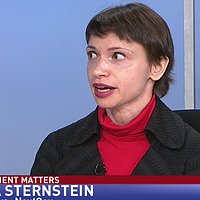Can parental spyware keep kids safe online?
Loading...
For parents concerned about what's happening on their kids' smartphones, there are a growing number of apps for monitoring children's digital lives.
Tech giants such as Symantec and smaller companies such as TeenSafe and Net Nanny sell software through Amazon, their own websites, or Apple's App Store to track kids' chats and social media interactions, searching for inappropriate terms and perhaps predatory interactions.
But while parents may see these kind of tracking tools as a way of keeping their kids safe from bullying and sexual harassment, some law enforcement educators say that so-called spyware isn't the solution for protecting kids on the internet.
"I don’t believe that putting spyware on their cellphone is the answer to this issue, but I very strongly believe that communication is the answer," says Joe Laramie, a parent and program manager for the Missing and Exploited Children’s Training and Technical Assistance Program at the National Criminal Justice Training Center.
"I think that there is some level of trust that get’s broken when we spy on our kids," he says.
Instead, many child advocates say engaging children in constant, even if uncomfortable, conversation about what's happening on their social media apps, chats, and text messages is the best way to keep kids safe and detect any inappropriate digital activities. Additionally, say experts, parents may want to consider stricter time limits for when their children can use their devices.
To be sure, as more kids acquire their own personal devices, they are also using them to share, post, or solicit explicit images. Fifteen percent of 12 to 17-year-olds with a cellphone say they have received nude or semi-nude images of someone they know via text message, according to research from the Pew Research Center Internet and American Life Project.
Additionally, sexual predators are taking advantage of the anonymity that many social networking apps afford to target minors online and offline. Just this Wednesday, a Connecticut man pleaded guilty to child enticement, after using video chat app Chat Bazaar to convince a 13-year-old girl to send him explicit photos.
While certain spyware tools promise to ping parents with notifications about all texts and recent activity on social networks, Mr. Laramie and his colleagues say that these apps, in general, often aren't as successful as parents might hope.
Controls intended to silence strangers and night-time texters might not even function, especially when tech-savvy kids quickly find ways to circumvent protections. Parents also risk information overload if they receive every text and social media post their child shares with friends, Laramie says.
Instead, he says, parents may want to adjust device settings so that kids require a parent’s permission to download apps, giving them time to more fully understand how the features of various social media and video apps work.
Some cellphone companies also offer parental controls such as the ability to cut off data and voice usage at night. But that may not stop some persistent kids who can log back on via Wi-Fi.
"It's hard to totally lock down the phone, so what you do have to do is almost take it away," says Brad Russ, director of the National Criminal Justice Training Center, who oversees the country's largest child protection training programs.
Some companies that make software for remotely monitoring children’s devices recommend parents use their products in conjunction with candid dialogue about online safety.
"In real life, you are going to be very aware of the types of friends that your child is hanging out with. That becomes far more complicated as those social interactions move online and there have been too many cases where dangerous or even deadly things have happened due to liaisons that were created online,” says Chris Rothey, president of Net Nanny, a firm that sells parental control and web-block software.
"As a parent, you have to find that delicate balance between how much you want to be aware and how much you are going to trust your child who frankly isn't fully equipped to make the best decisions," he says.
The firm’s software can inform parents about who their kids are friending on Facebook and other social sites, as well as selectively notify them about conversations, say, if a teenager starts communicating with words indicative of overt sexual behavior.
"Any time the software takes action, it tells the child what it did and why it did it," Rothey said.
Michael Canavan, senior vice president of Kaspersky Lab North America, which also sells monitoring software, says his company's products aren't meant to turn parents into Big Brother. For example, he says, Kaspersky’s Safe Kids program lets parents track cellular and SMS traffic without accessing the contents of messages.
"Parents should leverage tools that give them the opportunity to come to their child’s aid only when they need it," he says. "They should adhere to the privacy of their child and not turn themselves into spies."






